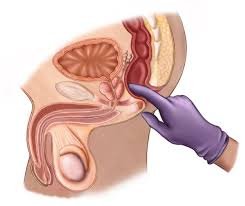Prostate cancer is the most common cancer among Nigerian men and a leading cause of cancer-related mortality, with an estimated 32.8 cases and 16.3 deaths per 100,000 men. Nigeria’s mortality rate is more than double that of North America, where only about 20% of cases are incurable at diagnosis compared to 80% in Nigeria. This report by Sultan Rabiu examines the epidemiology, risk factors, management challenges, and barriers to care, emphasising the critical issue of late diagnosis, supported by quotes from credible authorities.
Epidemiology and Burden in Nigeria

Prostate cancer accounts for approximately 37.5% of all cancer cases in Nigerian men, with 18,019 cases recorded in 2022. It is the third most common cancer overall in Nigeria, following breast and cervical cancers. The high mortality rate is driven by late-stage presentation, with over 50% of men diagnosed with advanced disease. Dr Titilola Akinremi, a leading researcher, notes, “Prostate cancer has become the most prevalent cancer among males in Nigeria, and similar to other black populations, Nigerian men present with more advanced disease at an earlier age than in several other ethnic groups.”
A 2019 study in The Lancet Oncology highlights the severity: “For Nigerian men, prostate cancer is both the most common and most deadly cancer with 32.8 cases and 16.3 deaths per 100,000 men. This is more than double the mortality in North America, with an estimated 80% of Nigerians incurable on diagnosis.” Data from 15 Nigerian cancer registries (2009–2016) show 4,104 prostate cancer cases, with a peak incidence in men aged 70–74, though 8.7% of cases occur in men under 55, indicating a rising burden in younger populations.
Risk Factors
While the exact cause of prostate cancer is unknown, established risk factors include:
Age: Incidence rises sharply after age 50, peaking at 65–74.
Genetics and Family History: A radiation oncologist, Dr Atara Ntekim, states, “The proportion of young men with prostate cancer [in Nigeria] was 8.86%. It is therefore important to consider prostate cancer in young men as a different entity.” Family history doubles the risk, with inherited mutations such as BRCA1/2 implicated.
Ethnicity: Men of African descent face higher incidence and mortality. A urologist, Dr D.N. Osegbe asserts, “The clinical prostate cancer rate in Nigerians may be as great as that noted in black men in the United States, which may suggest a common enhancing genetic predisposition.”
Lifestyle and Environmental Factors: Obesity and environmental exposures (e.g., pesticides) may contribute, though evidence is less conclusive than for other cancers.
A urologist at Ahmadu Bello University Teaching Hospital Dr Christian Agbo, emphasises, “African American race/ethnicity is one of the three primary non-modifiable risk factors confirmed for prostate cancer.” Chronic infections, common in low-income settings, contribute to 13% of cancers in Nigeria, though their role in prostate cancer is less clear.
Management and Treatment Challenges
Management of prostate cancer in Nigeria is hindered by late presentation and limited resources. Treatment options include:
Active Surveillance: Used for low-risk cases but rare due to diagnostic limitations.
Surgery and Radiotherapy: Radical prostatectomy and external beam radiotherapy are available in few centres, with Nigeria having limited facilities compared to countries like Ghana.
Hormonal Therapy and Chemotherapy: A urologist, Dr Stephen Ikuerowo notes, “Androgen deprivation therapy was the treatment for 96.34% of patients in Burkina Faso, reflecting similar trends in Nigeria where advanced cases dominate.”
A 2024 study in BMC Health Services Research underscores the challenge: “While prostate cancer is highly curable with early detection and effective multidisciplinary management, the quality of care is suboptimal in this setting.” Late presentation, with 75% of patients having locally advanced or metastatic disease, leads to high mortality rates, with 64% of patients dying within two years of diagnosis.
Barriers to Effective Care
Several systemic barriers exacerbate Nigeria’s prostate cancer burden:
Late Presentation: Dr Musliu Tolani, a researcher, states, “Prostate cancer mortality rates are high in Nigeria… due partly to late presentation of patients in health facilities.” Over 98% of cases are diagnosed at advanced stages, driven by low awareness and cultural stigma.
Limited Screening: A public health expert, Dr Rogers Enemugwem reports, “Only 14.9% of respondents had good knowledge of prostate cancer, while 39.6% knew screening methods.” PSA testing and digital rectal exams are scarce, especially in rural areas.
Inadequate Infrastructure: Nigeria has only two population-based cancer registries, limiting data accuracy. Dr Ikuerowo adds, “The majority of men already have advanced and high-grade disease and have not even sought medical treatment.”
Financial Barriers: Most patients pay out-of-pocket for screening and treatment.
Low Awareness: A 2013 study found that “a large proportion of adult Nigerian men are ignorant of the prostate gland and its diseases in general, and carcinoma of the prostate in particular.”
Public Health Impact and Prevention
The high burden of prostate cancer underscores the need for urgent action. Dr Ntekim emphasises, “It is therefore important to develop appropriate ways to control this disease to ensure survival and good quality of life.” Recommended strategies include:
Education: Community campaigns, as advocated by Dr Akinremi, can reduce stigma and promote early detection.
Screening Access: Expanding PSA testing, particularly in rural areas, aligns with Nigeria’s National Cancer Control Plan.
Infrastructure Investment: Dr Agbo notes, “Sustainable delivery of high-quality care for patients with localised prostate cancer is needed to save more lives.”
Conclusion
Prostate cancer remains a pressing public health challenge in Nigeria, with high mortality driven by late diagnosis and systemic barriers. As Dr Osegbe concludes, “The study strongly suggested that Nigeria is not a low-risk zone for prostate cancer as was previously believed.” Enhanced screening, infrastructure, and awareness are critical to reducing the burden and improving outcomes for Nigerian men.



